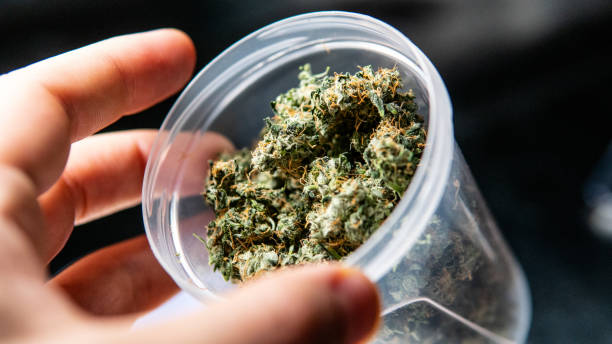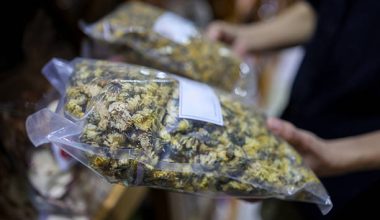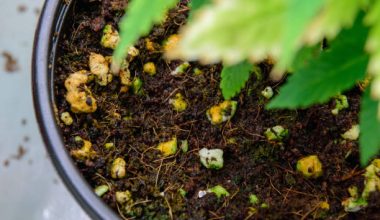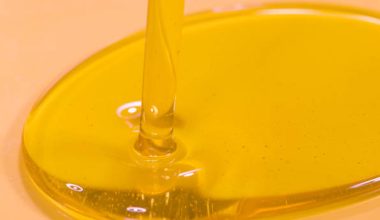Cannabis has long been admired for its wide array of compounds that offer various benefits, with tetrahydrocannabinol (THC) and cannabidiol (CBD) being the most well-known. However, there is another compound that is gaining attention among both medical cannabis users and wellness enthusiasts: tetrahydrocannabinolic acid (THCA). THCA is the precursor to THC but does not produce the psychoactive effects that many associate with cannabis consumption. This article takes an in-depth look at THCA flower, its uses, potential benefits, and how it differs from traditional cannabis.
What is THCA Flower?
THCA flower refers to cannabis flowers that are naturally abundant in THCA, the acidic form of THC. When cannabis is harvested before it undergoes any heating or decarboxylation process (such as smoking or vaping), it contains THCA. Unlike THC, which is known for its euphoric effects, THCA is non-psychoactive, meaning it doesn’t induce the “high” that THC does. This makes THCA an appealing option for those who want the therapeutic properties of cannabis without the intoxicating effects.
In its raw state, cannabis is rich in THCA. Through heat (for example, when smoking, vaping, or cooking), THCA undergoes a process known as decarboxylation, which converts it into the psychoactive THC. This transformation is what causes the high, but as long as THCA is not heated, it retains its non-psychoactive nature.
The Science Behind THCA and THC
At the molecular level, THCA and THC are very similar, with the primary difference being the extra carboxyl group in THCA. This carboxyl group is what makes THCA non-psychoactive. When heat is applied, the carboxyl group is removed, and THCA transforms into THC, which is psychoactive. While THC is responsible for the mind-altering effects of cannabis, THCA, being non-psychoactive, offers a different kind of therapeutic benefit.
This distinction is important for individuals looking to utilize cannabis for wellness without experiencing the “high” commonly associated with marijuana use. Whether for medical reasons or personal preference, consuming THCA flower can provide the benefits of cannabis without the intoxicating effects of THC.
How Does THCA Flower Differ From Regular Cannabis?
The most significant difference between THCA flower and regular cannabis lies in their chemical composition and how they interact with the body. Regular cannabis strains are typically cultivated for their high THC content, and the goal is to activate THC through heating. When consumed in the usual ways (smoking, vaping, or edibles), THC is released into the bloodstream, producing its psychoactive effects.
In contrast, THCA flower is often consumed in its raw form, or minimally processed, to preserve the THCA content. This means that THCA flower does not undergo decarboxylation and, as a result, does not cause a high. This is especially appealing for people seeking the therapeutic potential of cannabis without the psychological effects.
Health Benefits of THCA Flower
Though research into THCA’s full range of benefits is still in its early stages, a growing body of evidence suggests that this compound has a variety of potential health benefits. Some of the key therapeutic effects of THCA flower include:
1. Anti-Inflammatory Properties
THCA has been shown to have powerful anti-inflammatory effects. This makes it a promising treatment for inflammatory conditions like arthritis, Crohn’s disease, and other chronic inflammatory conditions. Reducing inflammation can help alleviate pain, improve mobility, and increase overall comfort for those dealing with these issues.
2. Neuroprotective Benefits
THCA is thought to have neuroprotective properties, meaning it may help protect the brain from damage caused by neurodegenerative diseases like Alzheimer’s and Parkinson’s disease. Research is ongoing, but early studies suggest that THCA may have a role in preserving cognitive function and slowing the progression of neurodegenerative diseases.
3. Anti-Nausea Effects
THCA has been linked to anti-nausea properties, making it an attractive option for individuals undergoing chemotherapy or dealing with chronic nausea. By potentially reducing nausea and vomiting, THCA may help improve quality of life for patients undergoing treatments that cause these symptoms.
4. Anti-Spasmodic Qualities
Some research suggests that THCA may act as an anti-spasmodic, helping to relieve muscle spasms and cramps. This property could be particularly beneficial for people suffering from conditions such as multiple sclerosis, epilepsy, or even menstrual cramps.
5. Appetite Control
Unlike THC, which is known for stimulating appetite, THCA may have a more neutral effect on appetite. While more research is needed, some individuals have reported mild effects on hunger, which could be beneficial for people looking to manage their appetite without the intense hunger often triggered by THC.
6. Mood Regulation
THCA may have a mood-stabilizing effect without producing a high. It has been noted by some consumers to help reduce stress and anxiety. People who use THCA often report a calming, relaxing effect without the overwhelming euphoria associated with THC.
How to Consume THCA Flower
There are several ways to incorporate THCA flower into your wellness routine. Here are a few common methods:
1. Raw Consumption
One of the easiest and most straightforward ways to consume THCA flower is to eat it raw. Raw cannabis can be used in smoothies, juices, or even added to salads. This method allows you to consume THCA without decarboxylating it into THC, preserving its non-psychoactive properties.
2. THCA Tinctures
THCA tinctures are liquid extracts made from raw cannabis flowers. These tinctures can be consumed sublingually (under the tongue) for quick absorption. Tinctures offer a convenient way to enjoy the benefits of THCA, especially for people who may not enjoy smoking or vaping.
3. Topical Applications
THCA can be infused into topical creams or balms, which are applied directly to the skin. This method is often used for localized pain relief, inflammation, and skin conditions. It offers the therapeutic benefits of THCA without the need for ingestion.
4. Vaping Raw Cannabis
Vaping is another method for consuming THCA flower, as long as the temperature is kept low enough to avoid decarboxylation. Vaping raw cannabis allows you to inhale the vapor without activating THC, preserving the non-psychoactive effects of THCA.
Legal Status of THCA Flower
The legal status of THCA flower depends on local laws and regulations, which can vary by country or state. In regions where cannabis is legal for medical or recreational use, THCA flower is typically legal as long as it doesn’t contain significant amounts of THC. However, it’s important to stay informed about local laws, as cannabis regulations are constantly evolving.
Final Thoughts
THCA flower is emerging as an exciting alternative for those seeking the therapeutic benefits of cannabis without the psychoactive effects of THC. From its anti-inflammatory and neuroprotective properties to its potential for mood regulation, THCA offers a wide range of possibilities. As research continues to explore its full spectrum of benefits, THCA flower may become a key component of cannabis wellness routines.
For those looking for a cannabis option that doesn’t impair cognitive function or cause a high, THCA flower is worth exploring. Whether used raw, in tinctures, or topically, this non-psychoactive compound has the potential to provide a wide array of health benefits, making it a valuable addition to the cannabis community.
Medical Disclaimer:
The information provided in these blog posts is intended for general informational and educational purposes only. It is not a substitute for professional medical advice, diagnosis, or treatment. Always seek the advice of your physician or other qualified healthcare provider with any questions you may have regarding a medical condition. The use of any information provided in these blog posts is solely at your own risk. The authors and the website do not recommend or endorse any specific products, treatments, or procedures mentioned. Reliance on any information in these blog posts is solely at your own discretion.






